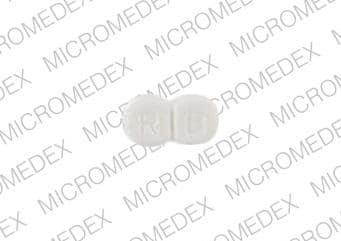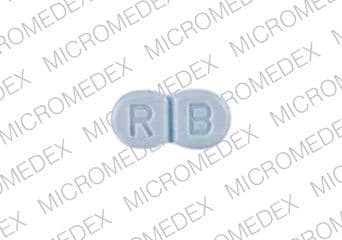Glimepiride
Generic name: glimepiride
Brand name: Amaryl
Dosage form: oral tablet (1 mg; 2 mg; 4 mg)
Drug class: Sulfonylureas
Medically reviewed by A Ras MD.
What is glimepiride?
Glimepiride is used to lower blood sugar in patients with high blood sugar (diabetes).
Description
Glimepiride tablets, USP are an oral sulfonylurea that contains the active ingredient glimepiride. Chemically, glimepiride is identified as 1-[[p-[2-(3-ethyl-4-methyl-2-oxo-3-pyrroline-1-carboxamido) ethyl]phenyl]sulfonyl]-3-(trans-4-methylcyclohexyl)urea (C 24H 34N 4O 5S) with a molecular weight of 490.62. Glimepiride USP is a white to almost white, crystalline, odorless to practically odorless powder and is practically insoluble in water.
The structural formula is:

Glimepiride tablets, USP contain the active ingredient glimepiride and the following inactive ingredients: lactose monohydrate, magnesium stearate, microcrystalline cellulose, povidone, sodium lauryl sulfate and sodium starch glycolate. In addition, Glimepiride 1 mg tablets contain Ferric Oxide Red, Glimepiride 2 mg tablets contain FD&C Blue #2 Indigo carmine Lake and Ferric Oxide Yellow, Glimepiride 3 mg tablets contain Ferric Oxide Yellow, Glimepiride 4 mg tablets contain FD&C Blue #2 Indigo carmine Lake and Glimepiride 6 mg tablets contain Ferric Oxide Red.
Mechanism of Action
Glimepiride primarily lowers blood glucose by stimulating the release of insulin from pancreatic beta cells. Sulfonylureas bind to the sulfonylurea receptor in the pancreatic beta-cell plasma membrane, leading to closure of the ATP-sensitive potassium channel, thereby stimulating the release of insulin.
Before taking glimepiride, tell your doctor:
- If you are allergic to glimepiride; any part of this medicine; or any other drugs, foods, or substances. Tell your doctor about the allergy and what signs you had.
- If you have any of these health problems: Acidic blood problem or type 1 diabetes.
- If the patient is a child. Do not give glimepiride to a child.
This is not a list of all drugs or health problems that interact with glimepiride.
Tell your doctor and pharmacist about all of your drugs (prescription or OTC, natural products, vitamins) and health problems. You must check to make sure that it is safe for you to take glimepiride with all of your drugs and health problems. Do not start, stop, or change the dose of any drug without checking with your doctor.
What are some things I need to know or do while I take glimepiride?
- Tell all of your health care providers that you take glimepiride. This includes your doctors, nurses, pharmacists, and dentists.
- If you have a sulfa (sulfonamide) allergy, talk with your doctor.
- Low blood sugar may happen with glimepiride. Very low blood sugar can lead to seizures, passing out, long lasting brain damage, and sometimes death. Talk with the doctor.
- Check your blood sugar as you have been told by your doctor.
- Be careful if you have G6PD deficiency. Anemia may happen.
- Have blood work checked as you have been told by the doctor. Talk with the doctor.
- Do not drive if your blood sugar has been low. There is a greater chance of you having a crash.
- Talk with your doctor before you drink alcohol.
- If you also take colesevelam, take it at least 4 hours after you take glimepiride.
- It may be harder to control blood sugar during times of stress such as fever, infection, injury, or surgery. A change in physical activity, exercise, or diet may also affect blood sugar.
- This medicine may raise the chance of death from heart disease. Talk with your doctor.
- If you are 65 or older, use glimepiride with care. You could have more side effects.
- Tell your doctor if you are pregnant or plan on getting pregnant. You will need to talk about the benefits and risks of using glimepiride while you are pregnant.
- Tell your doctor if you are breast-feeding. You will need to talk about any risks to your baby.
How is glimepiride best taken?
Use glimepiride as ordered by your doctor. Read all information given to you. Follow all instructions closely.
- Take with a meal.
- Take with the first meal of the day, if taking once a day.
- Take glimepiride at the same time of day.
- Follow the diet and workout plan that your doctor told you about.
- Keep taking glimepiride as you have been told by your doctor or other health care provider, even if you feel well.
What do I do if I miss a dose?
- Take a missed dose as soon as you think about it, with a meal.
- If it is close to the time for your next dose, skip the missed dose and go back to your normal time.
- Do not take 2 doses at the same time or extra doses.
What are the side effects of glimepiride that I need to call my doctor about immediately?
WARNING/CAUTION: Even though it may be rare, some people may have very bad and sometimes deadly side effects when taking a drug. Tell your doctor or get medical help right away if you have any of the following signs or symptoms that may be related to a very bad side effect:
- Signs of an allergic reaction, like rash; hives; itching; red, swollen, blistered, or peeling skin with or without fever; wheezing; tightness in the chest or throat; trouble breathing, swallowing, or talking; unusual hoarseness; or swelling of the mouth, face, lips, tongue, or throat.
- Very bad dizziness or passing out.
- Shortness of breath.
- Feeling very tired or weak.
- Low blood sugar can happen. The chance may be raised when glimepiride is used with other drugs for diabetes. Signs may be dizziness, headache, feeling sleepy or weak, shaking, fast heartbeat, confusion, hunger, or sweating. Call your doctor right away if you have any of these signs. Follow what you have been told to do for low blood sugar. This may include taking glucose tablets, liquid glucose, or some fruit juices.
- A very bad skin reaction (Stevens-Johnson syndrome/toxic epidermal necrolysis) may happen. It can cause very bad health problems that may not go away, and sometimes death. Get medical help right away if you have signs like red, swollen, blistered, or peeling skin (with or without fever); red or irritated eyes; or sores in your mouth, throat, nose, or eyes.
What are some other side effects of glimepiride?
All drugs may cause side effects. However, many people have no side effects or only have minor side effects. Call your doctor or get medical help if any of these side effects or any other side effects bother you or do not go away:
- Upset stomach.
- Dizziness.
- Feeling tired or weak.
- Headache.
- Flu-like signs.
- Weight gain.
These are not all of the side effects that may occur. If you have questions about side effects, call your doctor. Call your doctor for medical advice about side effects.
You may report side effects to the FDA at 1-800-332-1088. You may also report side effects at https://www.fda.gov/medwatch.
If overdose is suspected:
If you think there has been an overdose, call your poison control center or get medical care right away. Be ready to tell or show what was taken, how much, and when it happened.
How do I store and/or throw out glimepiride?
- Store at room temperature.
- Store in a dry place. Do not store in a bathroom.
- Keep all drugs in a safe place. Keep all drugs out of the reach of children and pets.
- Throw away unused or expired drugs. Do not flush down a toilet or pour down a drain unless you are told to do so. Check with your pharmacist if you have questions about the best way to throw out drugs. There may be drug take-back programs in your area.
Label
PACKAGE LABEL.PRINCIPAL DISPLAY PANEL
Micro Labs Limited Container Labels
- NDC 42571-100-01
GLIMEPIRIDE
TABLETS, USP
1 mg
ONCE A DAY
Rx Only
100 Tablets
Micro Labs Limited

- NDC 42571-101-01
GLIMEPIRIDE
TABLETS, USP
2 mg
ONCE A DAY
Rx Only
100 Tablets - Micro Labs Limited


- NDC 42571-103-01
GLIMEPIRIDE
TABLETS, USP
4 mg
ONCE A DAY
Rx Only
100 Tablets
Micro Labs Limited


SRC: NLM .
